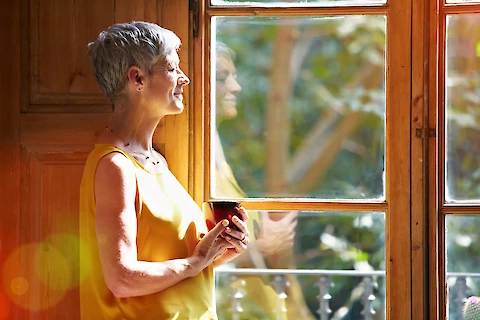
For seniors, maintaining their health becomes increasingly important, and one crucial aspect to pay attention to is their Vitamin D levels. This essential nutrient provides numerous benefits for seniors, from promoting strong bones to supporting a healthy immune system.
But how can we ensure that they're getting enough Vitamin D? There are multiple ways: through supplements, a nutritious diet, and even sun exposure.
Vitamin D Supplements
When it comes to Vitamin D supplements, there are some notable advantages. They offer a convenient and easy way for seniors to ensure they're receiving an adequate amount of this vital nutrient, especially for those with limited sun exposure or dietary restrictions.
However, there are some potential downsides to relying solely on supplements. Firstly, the risk of overdosing and experiencing side effects is present. This is because seniors' bodies do not absorb supplements as effectively as natural dietary sources.
This is where caregivers can step in to help manage the supplementation process. By organizing daily or weekly supplements as advised by a doctor and closely monitoring for any side effects or interactions with other medications, caregivers can ensure seniors receive the right dosage of Vitamin D safely.
Vitamin D Through Diet
On the other hand, obtaining Vitamin D through a well-rounded diet offers several benefits. Dietary sources of these essential nutrients are more easily absorbed by the body. Consuming a variety of Vitamin D-rich foods can contribute to seniors' overall healthier lifestyle.
Some excellent sources of dietary Vitamin D include fatty fish like salmon, tuna, and mackerel, and fortified dairy products such as milk, yogurt, cheese, egg yolks, and beef liver. However, it can be challenging to get enough Vitamin D solely through diet. This is particularly true for seniors with dietary restrictions or allergies.
Caregivers can play a significant role in helping seniors achieve a healthy balance of dietary Vitamin D. They can assist with meal planning and grocery shopping, cook nutritious and delicious meals that incorporate Vitamin D-rich foods, and encourage seniors to explore new recipes and ingredients. This support not only ensures seniors receive the necessary nutrients but also fosters a positive relationship with food and mealtime.
Sun Exposure
In addition to supplements and diet, sun exposure is another natural way to increase Vitamin D levels. Spending time outdoors in the sunshine encourages the body to produce nutrients. In fact, it also provides an opportunity for seniors to engage in various activities and exercise.
However, sun exposure has its downsides, such as the risk of skin cancer and sunburn. Additionally, it may be difficult for those with limited mobility or living in cloudy climates to get enough sun.
To help seniors safely enjoy the benefits of sun exposure, caregivers can provide companionship during outdoor activities, while also ensuring precautions like wearing sunscreen and avoiding peak sun hours are taken. This allows seniors to obtain Vitamin D and enjoy the great outdoors without compromising their health.
Building a Long-Term Routine
Building a routine that balances supplements, a healthy diet, and sun exposure is crucial for maintaining optimal Vitamin D levels. Consistency is key, and caregivers can be instrumental in helping seniors establish and maintain routines tailored to their individual needs and preferences. By working together, seniors and caregivers can create a holistic approach to obtaining adequate Vitamin D and promoting overall well-being.
Senior Helpers Seattle Can Assist Seniors in Maintaining Adequate Vitamin Levels
The best way to maintain healthy Vitamin D levels is through a well-rounded approach that combines supplements, dietary sources, and sun exposure. Each method has its benefits and drawbacks, but when used in harmony, they can contribute to optimal health for seniors.
If you or a loved one in the Seattle, Bellevue, Kirkland, Redmond, Kent, Renton, or Sammamish area needs assistance with meal planning, outdoor activities, or managing supplements, Senior Helpers Seattle is here to help. Contact us today to learn more about our caregiving services and how we can support seniors' journey to optimal health.